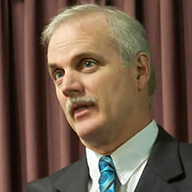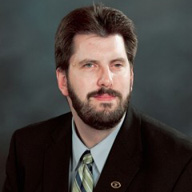 |
|
| Volume 21 Number 5 May 2019 | Page 6 |
Brian R. Kenyon
 One truth that should give each Christian encouragement and confidence to keep on keeping on in the Christian life is our promised home in Heaven! Paul said, “For we know that if our earthly house, this tent, is destroyed, we have a building from God, a house not made with hands, eternal in the heavens” (2 Corinthians 5:1). No matter what happens to the present, physical body, we will have a new body in the resurrection (1 Corinthians 15:50-58).
One truth that should give each Christian encouragement and confidence to keep on keeping on in the Christian life is our promised home in Heaven! Paul said, “For we know that if our earthly house, this tent, is destroyed, we have a building from God, a house not made with hands, eternal in the heavens” (2 Corinthians 5:1). No matter what happens to the present, physical body, we will have a new body in the resurrection (1 Corinthians 15:50-58).
The Physical Body
The present, physical body is not meant to be permanent. The word “earthly” indicates “of this world.” It is the same word translated “terrestrial” [bodies] (1 Corinthians 15:40; John 3:12; Philippians 2:10; 3:19; James 3:15). The word translated “house” [“home” ESV] usually refers to a literal, structural house but can refer to a person’s life (Matthew 7:24-27) or, as in 2 Corinthians 5:1, a person’s body. On earth, our human body is but a “tent” [“tabernacle” KJV], which indicates a temporary body for this earthly realm. “Tent” here is not from the usual Greek word for “tent.” The word occurs again only a few verses later (2 Corinthians 5:4). The Greek word is used in an apocryphal work called the Wisdom of Solomon (9:15) and throughout the papyri to refer to the human body (Kruse 112), which meaning certainly fits this context (2 Corinthians 4:16-5:10). The persecutions Paul endured could have at any moment resulted in his death (2 Corinthians 1:8; 11:23-27).
From a Jewish perspective, the use of this word for “tent” would be reminiscent of the Feast of Tabernacles. During this feast, the Israelites were to dwell in tents as a reminder of God taking care of them throughout the wilderness wanderings (Leviticus 23:34-36, 39-43). This would suggest to Paul’s readers that “the Christian would have to live in a booth before reaching the promised land” (Rogers and Rogers 401). The word “destroyed” [“dissolved” KJV] lets us know this body will not be permanent. The word means to destroy or tear down (Matthew 5:17; 24:2; 26:61; 27:40; Galatians 2:18). According to Thompson, “It is the word for the dismantling of a tent when the time comes to move on” (72).
The Resurrected Body
In contrast to this earthly body or “tent,” the future resurrected body or “house not made with hands” will be made for permanency (2 Corinthians 5:1b). A “building” refers to a solid structure (Matthew 24:1). The word is also used figuratively for edification (2 Corinthians 10:8; 12:19; 13:10). Whereas a tent is temporary and insecure, a building is both permanent and secure! Jesus used the word “temple” to refer to this building (John 2:21-22). “Not made with hands” describes something that is not of this world (1 Corinthians 15:42-54).
Conclusion
Let us not get too comfortable with the world and this temporal life (Romans 12:1-2; Hebrews 9:27). Rather, let us live in such a way as to make our eternal home with God in Heaven! Have we accepted life (Revelation 22:17)?![]()
Characters
David R. Kenney
 The statesman and one of the founders of our Republic, Benjamin Franklin, once said, “Give me 26 lead soldiers and I will conquer the world.” He was not referring to the military, but to the 26 letters of the English alphabet and the printed page (printed from lead-based letter type). Each of the letters or characters of the English alphabet is so vital to language that we rarely give such a thought.
The statesman and one of the founders of our Republic, Benjamin Franklin, once said, “Give me 26 lead soldiers and I will conquer the world.” He was not referring to the military, but to the 26 letters of the English alphabet and the printed page (printed from lead-based letter type). Each of the letters or characters of the English alphabet is so vital to language that we rarely give such a thought.
Without characters, there would be no words. Without words, there would be no sentences. Without sentences, there would be no paragraphs. Without paragraphs there would be no story. What a thought—you have to have words to convey thoughts—and you must have the characters to formulate the words for the thought! Characters matter! Without characters, you cannot look up a word you do not understand in the dictionary. I once had a classmate who said that he made it a practice to study 10 words from Webster’s Dictionary each day. That was 40 years ago. Imagine his command of the English language if he kept that practice!
Our English translations also present the challenge of understanding the definition of words being utilized in the context at the time the translation was made. Words may change meanings, sometimes changing greatly. For example, I publish a blog I deliberately entitled “The Bully Pulpit.” Some are quizzical about the name “Bully Pulpit.” I even had one or two insist I should change the name because it might give someone the wrong impression (e.g., a playground bully). With no intention of being, well, a bully, I have declined such suggestions. The term “bully pulpit” is from Theodore Roosevelt who would use “bully” to describe things that are superb and excellent. The term “pulpit” refers to a platform from which communication is delivered. Often you hear that the President of the United States should use the “bully pulpit.” What that means is the President should use his authority to deliver important themes to the country directly rather than through media outlets. So, the Bully Pulpit, as I use it, is a platform to speak about books that deal with the most sublime, excellent, superb, bully subject—religion. Sure, the term may be provocative to some unfamiliar with it, but I deliberately chose it to be provocative! It prompts curious and sincere people to ask about it, which gives me the opportunity to get to know them.
The process of accessing the meaning of Greek words is the same as accessing the meaning of English words—characters matter! There are 24 characters in the Koine Greek alphabet. While the early New Testament documents were written in all capital letters, there are both upper and lower case letters in Greek as there are in English. The letters in lexicons or dictionaries are in a sequential order, like our alphabet and are mostly in lower case. When one can learn these letters in their proper sequence, it will greatly assist one’s ability to learn the words in which the New Testament was originally written. Here are the letters, in sequential order, of the Greek New Testament in lower case: α, β, γ, δ, ε, ζ, η, θ, ι, κ, λ, μ, ν, ξ, ο, π, ρ, σ, τ, υ, φ, χ, ψ and ω. Fraternities or sororities often use the names of these Greek characters: alpha, beta, gamma, delta, epsilon, zeta, eta, theta, iota, kappa, lambda, mu, nu, xi, omicron, pi, rho, sigma, tau, upsilon, phi, chi, psi and omega.
Remember, words mean things! Further, to know what words mean, one must know the characters that formulate those words. Jesus said of Himself, “I am the Alpha and the Omega, the Beginning and the End, the First and the Last” (Revelation 22:13 NKJV). Did you notice “alpha” and “omega” in the list of Greek character names? Characters matter!
Works Cited
Jackson, Wayne. Treasures from the Greek New Testament for the English Reader. Stockton: Courier P., 1996.
Overton, Basil. Gems From Greek. Abilene: Quality P., 1991.
Woods, Guy N. How to Read the Greek New Testament. Nashville: Gospel Advocate, 1970.